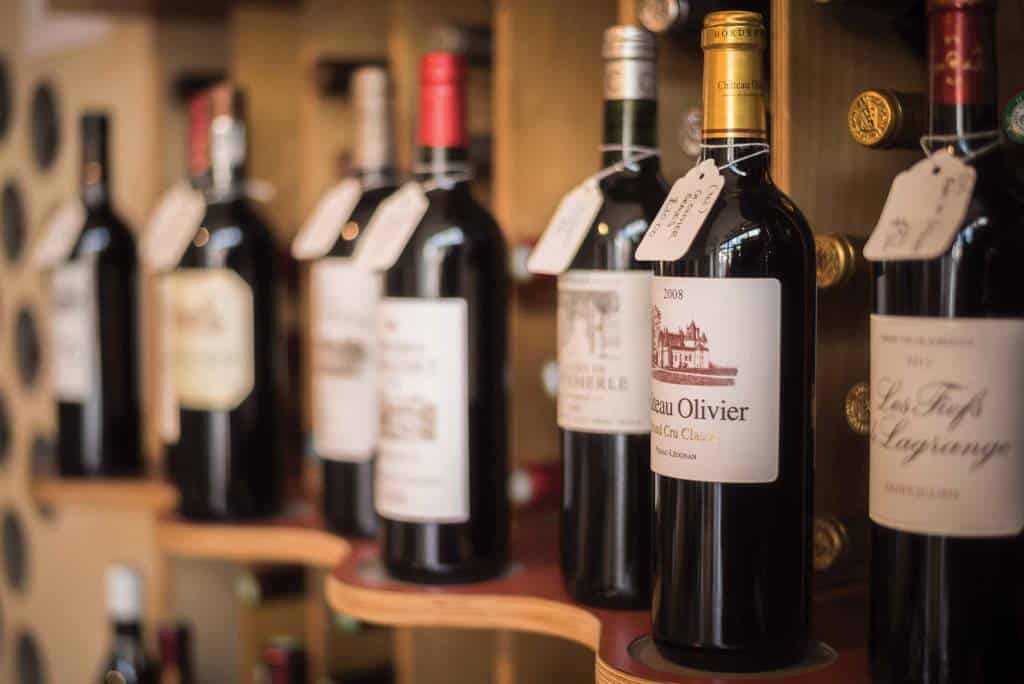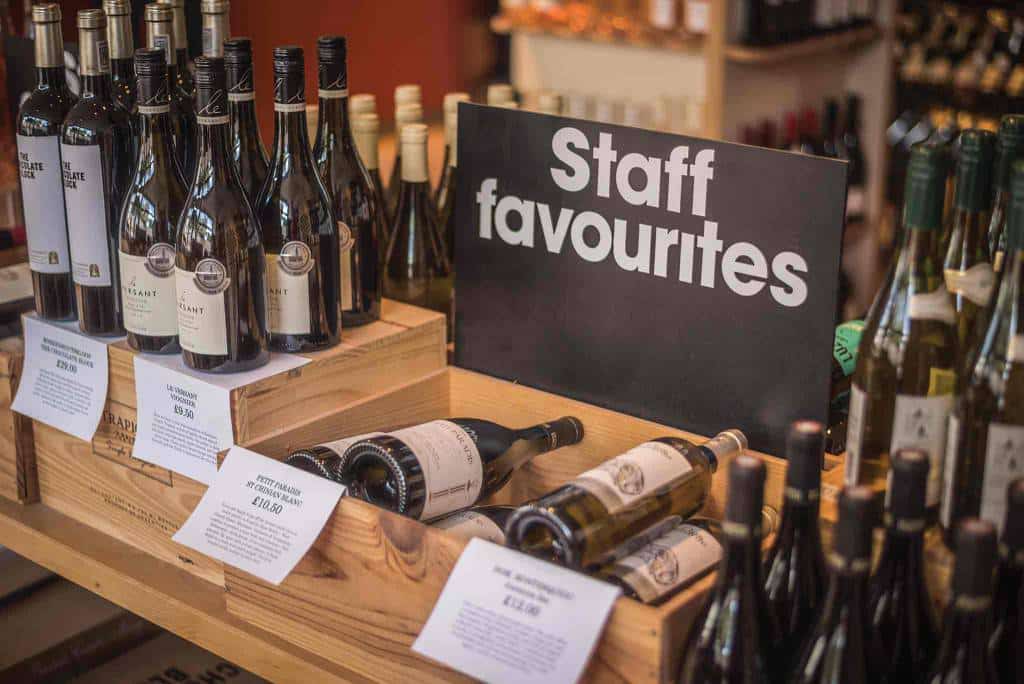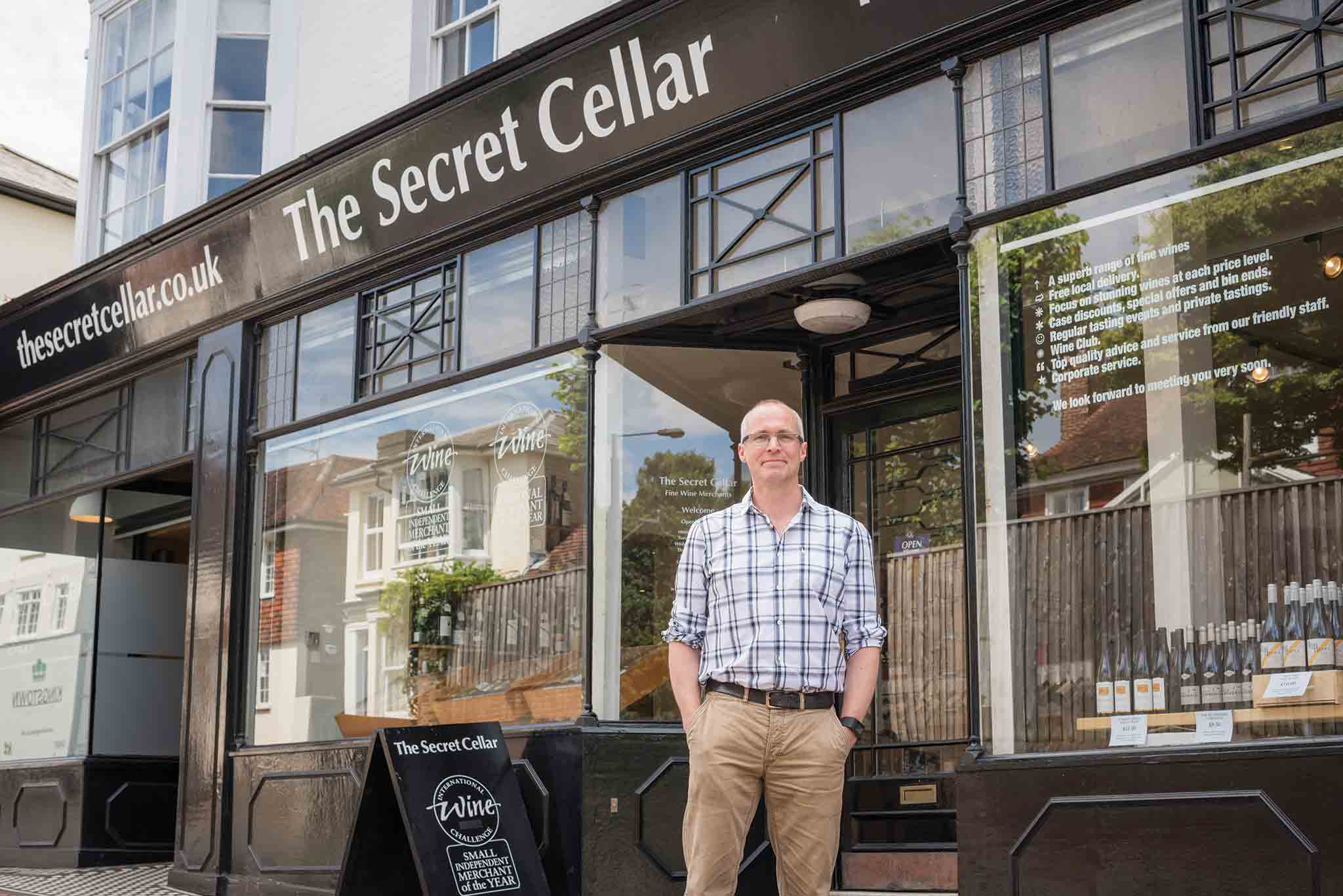You don’t need to know your Merlots from your Malbecs to invest in wine, but it certainly helps if you plan to make a sizeable return.
With more and more people opting to store their wealth by the bottle, leading wine expert Mike Watson said those taking this route need to be aware there are risks, as well as opportunities, when dealing in this unregulated market.
Mr Watson, who founded The Secret Cellar on Church Road, Tunbridge Wells in 2005, has spent the last 13 years in the wine trade, and knows how lucrative his products can be – if handled in the right way.
But while he has a thorough grasp of the ins and outs of the trade, he has ideas far more familiar to the rest of us about what to do with a good bottle of wine.
“My view is: Wine is there to be drunk,” he said. “That is what winemakers want you to do, and for the majority of customers we will sell them wine to drink at some point – whether that be now, in three years or in five years’ time.”
But he added that a lot of his customers do like to use wine as an investment. “They like the knowledge that they have a cellar full of wine appreciating in value.”
There are three ways in which people can go about doing this, he revealed.
Firstly, they can buy into a wine fund, which requires a minimum £10,000 investment and often locks the customer in for a minimum period of time before they can get a return.
This sum will be handled by specialists who invest on your behalf and pool your money as part of a bigger fund.
Secondly, a potential investor can hire the services of a specialist wine merchant, usually for a monthly fee, and they will advise on what to add to the portfolio. This generally costs a minimum of £200 to £250 a month.
“Or you can do it yourself,” said Mr Watson. This involves setting up a bonded account, so the wine is held in a government-bonded warehouse, while sourcing products from a range of merchants.
Bonded warehouses mean you will not pay duty or VAT on the product and it is easier to trade, he explained.
“You will basically go to a few different merchants and look for value in the market and things that have a long lifespan. There is no point buying anything that needs to be drunk in the next year or so. It is a long-term thing.
“This option means you buy a case here, a case there and can spend as much or as little as you like.”

He said that as a ‘general rule of thumb’, wine investment is not a short-term hobby – it should have a minimum five-year timescale, and usually longer.
This means enthusiasts should be looking at buying wines with at least a 15-year shelf life.
‘Decent’ red wines can last up to 50 or 60 years. “Those wines are not cheap to begin with,” Mr Watson said. “But they appreciate in value over time because there is a finite amount produced for each vintage.
“As time goes on there is less around because people drink it, and the idea is that as the wine approaches its peak drinking time, if you have stored it properly then the value should be much higher when it is ready to go.”
Traditionally, investors have concentrated on Bordeaux due to its high quality and small-scale production, and it still accounts for 70 per cent of the fine wine market.
Burgundy, Rhone and Champagne, alongside a ‘handful’ of Italian, Spanish and new world wines, have also been highly sought after.
“There are a few around the world which are considered a sort of ‘blue chip’ investment and should, in theory, always appreciate in value.”
English wine – the sparkling variety only – is just starting to make tentative inroads into investors’ portfolios. Mr Watson said: “We have the same soil types and weather as the Champagne region, so English sparkling wines are really starting to come on stream.”
Tillington Single Vineyard wine, from Nyetimber in West Sussex, is an example of a highly prized wine due to its quality and small production of just 4,000 bottles a year, he added.
He is also particularly bullish about the future value of this impressive vintage, which currently retails at £90 per bottle.
“They have pretty much sold all of it already, and this is not some cheap English fizz. They also don’t export any of it yet, but once they do the price is going to rocket.”
Once the preserve of a certain segment of western society, the desire for fine wines – whether for investment or simply to drink – has become a global phenomenon as other countries, China particularly, become more affluent.
“They want the most expensive or hard-to-get thing on their table,” he said, adding that this is having a dramatic effect on driving up prices, as production of the finest vintages remains limited.
Until recently, the main way of investing was to buy the wine ‘en primeur’ – a form of futures transaction where you pay for the wines whilst they are maturing and before they are bottled.
The idea was this benefitted the producer by ensuring they had a constant cash flow, while buyers would receive a discount against the future price 18 to 24 months down the line.
However, Mr Watson said this has ‘all changed’ as producers are so ‘awash with money’ that they no longer need to sell at a discount early on.
“The Chinese piled into the market in such a big way that the chateaux owners then realised they didn’t need to discount as much as they had previously done because prices were going through the roof.”

Some investors have had their fingers burnt by this, he said. Many who had bought into Bordeaux using this method since the 2009 vintage have seen the value since the en primeur price go down – meaning it would have been better to wait for the wine to be bottled and released.
“The whole market has changed somewhat. Now, instead of buying at the en primeur stage and being guaranteed to get it at a discount to the market price, people are being a bit more savvy in how they value the wine.
“They could look at the 2015 vintage and see it going at £50 per bottle and a 2005 wine going for £60, and deduce that although it’s a little more expensive they will not have to wait ten years before selling it.”
He said investors now make a judgement using this method, working out what it is worth buying by using previous years as a benchmark.
It has also led to wine critics having a lot of influence and increased speculation. “There are certain critics who score wines and then retaste them every five years or so.
“People are looking at these vintages and knowing that if the critic upgrades their score on the next tasting, the price is going to shoot up.
“What they are trying to do is spot anomalies in batches which they think may be priced below the market value.”
How much of a return an investor can expect to make is subject to an array of factors and, like any market, it experiences peaks and troughs.
But Mr Watson said that following trends through markets such as Live-Ex – a global wine exchange which uses the value of the top 100 fine wines as its main index – is a rough guide.
Using their data, if you had invested ten years ago, you would have doubled your money.
“However, the price has come down in the last two or three years, so if you had sold halfway through the ten-year investment, you would have trebled your money.
“This also means that if you had invested five years ago you would have lost money.”
Despite this, Mr Watson said the wine market will generally outperform other markets because it is based on such a finite commodity; it just depends on the timing.
“There’s a peak drinking window after which the quality declines again. So we always try to encourage customers to drink it on the way up, when it still has the youthful vibrancy about it.”
The same advice applies for investment, as most of the end buyers want to drink it.
Unlike a regular stock market, it can be much harder to offload your investments and find buyers, and there is almost no meaningful regulation.
“Unlike shares, you cannot just offload wine quickly. Sometimes you will have some wine and put it out to the market and people will not be buying it at that particular time. Ironically, it is not a very liquid asset.”
He said investors need to ‘be careful’ when entering into the wine industry as they ‘can be conned’.
“The safest route is the DIY option. Build up a good relationship with several different merchants who can guide you on where to go. Independents like us don’t mind doing that so long as you buy something through us. We are happy to advise on what to look for.
“You are also spreading your risk. You own the stock in your own bonded account and not just giving your money to a third party who is producing a piece of paper saying ‘look how much your wine is worth’ when they have never bought a bottle in their lives.
“It doesn’t happen all the time but there are some horror stories of it going on as people can be unscrupulous.”
One example he gave to drive home the point of checking a firm’s credentials was an Australian bonded company that recently went into administration, with bailiffs discovering that 30,000 bottles of wine worth £3million were missing.
He said the Government has just started to regulate wholesalers of wine by introducing a registration scheme that is supposed to prevent people smuggling in wine and avoiding duty – which adds about £2 per bottle.
But it doesn’t really have legs, he said, because it’s voluntary – meaning the merchants who sign up were above board in the first place.
“But it is the first step towards some legislation of the market and it helps to identify bona fide businesses.”
And does having a taste for wine make you a better investor?
“It does help if you enjoy the subject because the worst thing that can happen with wine is, although you are never going to lose a load of money on it, you may not make any.
“The worst case scenario is that you will be sitting there and drinking it with some friends.”
TOP TEN TIPS ON WINE INVESTMENT
-
- Use a reputable company – some may be fraudulent
-
- Only buy in bond – it avoids duties and VAT at the point of purchase. But make sure you keep good records
-
- Set up a bonded account – this costs about £15 per case per annum. And hold the wine in a government-bonded warehouse
-
- Be patient – take a medium to long-term view and do not expect immediate returns. It can take
ten years to make a good return and the wine market does peak and trough
- Be patient – take a medium to long-term view and do not expect immediate returns. It can take
-
- Think hard about what to buy – invest in small-production, top-quality wines, but not ones that need to be drunk in a year or so
-
- Buy the best you can afford – with storage costs, cellaring cheap wines makes no commercial sense. And always buy in the original wooden cases and make sure the wine is insured at its true value, not just the buying price
-
- Do your own research – merchants are salesmen so they will often recommend wines that aren’t right for you
-
- Be aware the market is changing quickly – you must keep an eye out as to which critics are influencing prices
-
- Wine is currently exempt from capital gains tax – this means any profit is tax-free, but it could change at any time
-
- Enjoy yourself – worst-case scenario is to crack open some bottles and announce that this is the worst investment you have ever made








